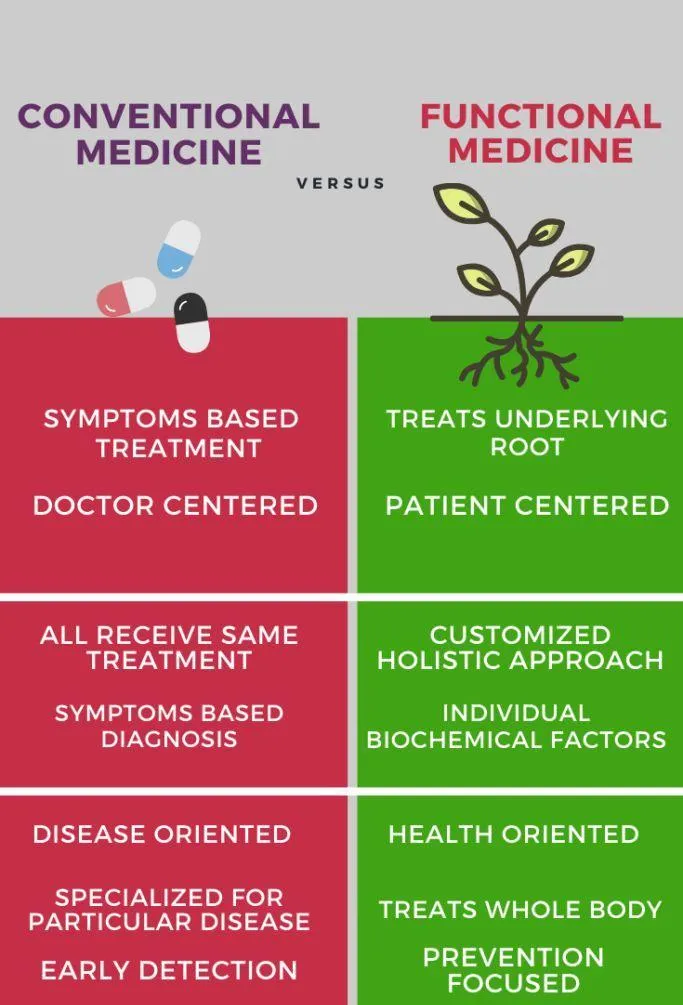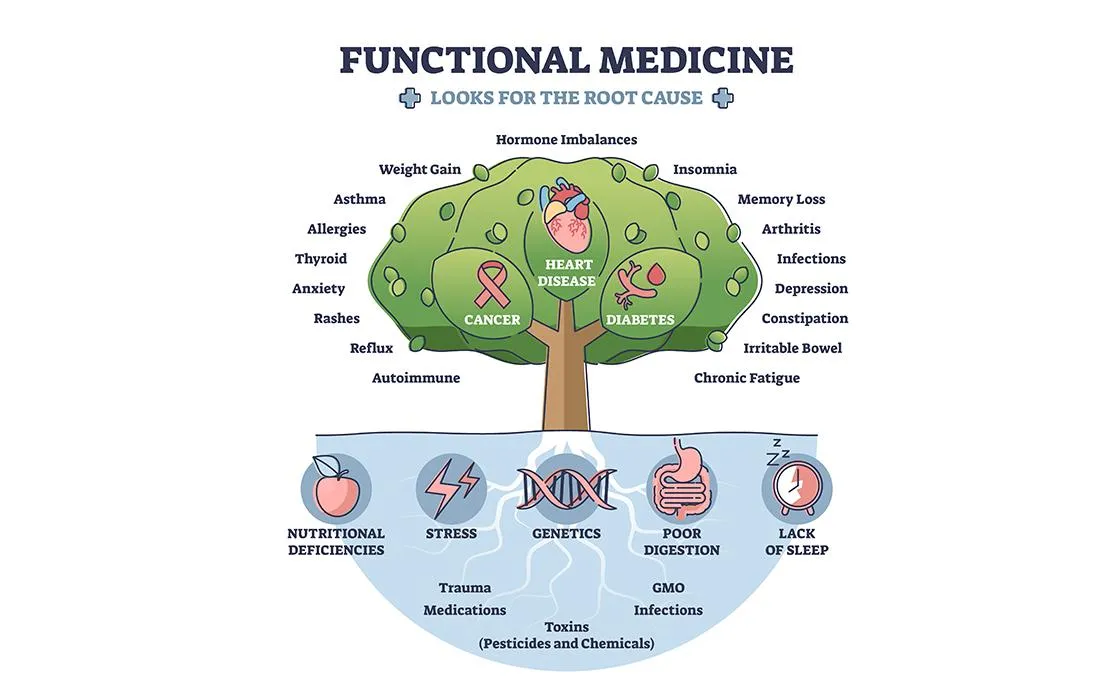HOW DOES FUNCTIONAL MEDICINE WORK?

Functional medicine works by looking at your whole body and life rather than just treating individual symptoms. Here’s how it typically works:
Detailed Assessment: You start with an in-depth evaluation, discussing your medical history, lifestyle, and any health issues you have.
Identifying Root Causes: The practitioner tries to find out what’s causing your health problems. This could involve looking at factors like diet, stress, and genetics.
Creating a Personalized Plan: Based on what they find, you get a tailored plan that may include changes in diet, exercise, supplements, and stress management.
Monitoring Progress: You regularly check in with your practitioner to see how the plan is working and make adjustments as needed.
Focus on Prevention: The goal is not just to treat symptoms but to promote long-term health and prevent future issues.
In essence, functional medicine takes a comprehensive and individualized approach to help you achieve better health.
OTHER FREQUENTLY ASKED QUESTIONS
WHAT IS FUNCTIONAL MEDICINE?
Functional medicine is an approach to healthcare that focuses on finding and treating the root causes of diseases, rather than just alleviating symptoms. It looks at how different aspects of a person’s life—like their diet, lifestyle, environment, and genetics—affect their health. The goal is to create a personalized treatment plan that helps restore balance and promote overall well-being.

WHAT MAKES FUNCTIONAL MEDICINE DIFFERENT?
Functional medicine differs from traditional medicine in that it focuses on identifying the root causes of illness, considering factors like genetics, environment, and lifestyle. It offers personalized, holistic care, addressing the whole body and emphasizing prevention, often using a combination of conventional and alternative therapies. Traditional medicine typically targets specific symptoms or conditions with standardized treatments like medications or surgery. It tends to be more focused on short-term solutions and specific diagnoses.
WHAT SHOULD I EXPECT USING FUNCTIONAL MEDICINE?
In functional medicine, you can expect a more personalized approach to your health. Here’s what typically happens:
1. Thorough Evaluation: You’ll have detailed discussions about your health history, lifestyle, and any symptoms you’re experiencing.
2. Holistic Focus: The practitioner will consider various factors—like diet, stress, sleep, and environmental influences—that might affect your health.
3. Personalized Plan: Based on your individual needs, you’ll get a tailored treatment plan. This could include dietary changes, supplements, exercise recommendations, and stress management techniques.
4. Long-Term Care: The focus is on long-term wellness and prevention, not just quick fixes for symptoms.
5. Collaboration: You’ll often work closely with your practitioner, as they may encourage you to be an active participant in your health journey.
Overall, expect a more comprehensive and supportive approach to improving your health.
STRUGGLING WITH ANY OF THE FOLLOWING?
Click on your symptom to read about our unique treatment approach.
Website designed by Kelli White Social Media
